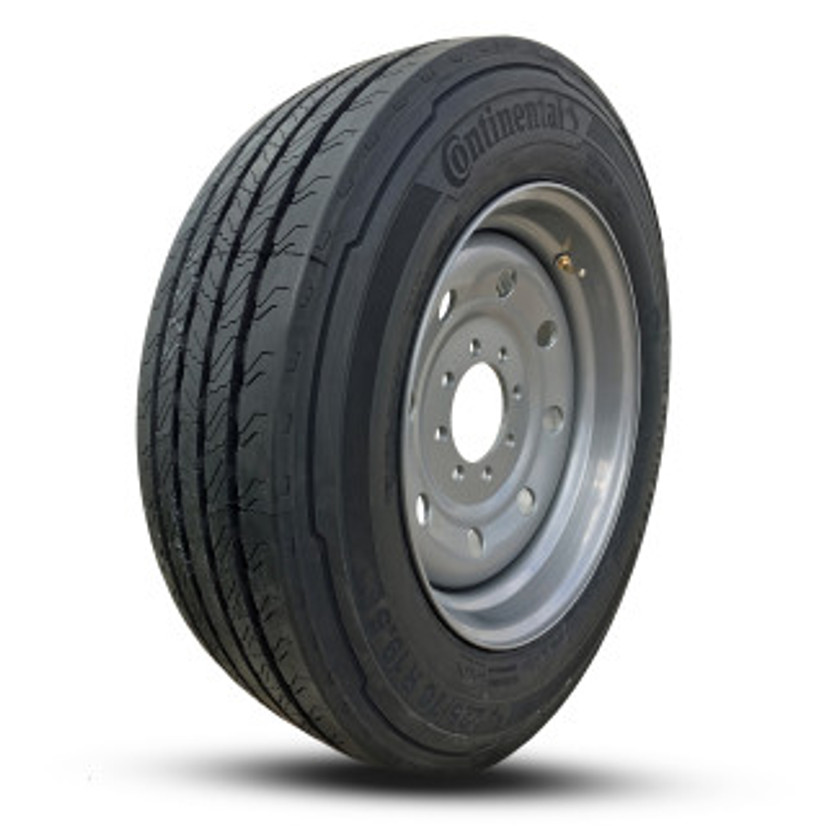5th Wheel RV Tires 101: Everything You Need to Know
The fan of 5th wheel RV travel knows the joy of self-sufficient travel. . There is immense pleasure in having your own space, your own bed, and your own “stuff” with you as you travel. . But, for the safest trailering , you need to have the right tires for your 5th wheel. Let’s explore this further. .
In this blog, you will learn about 5th wheel RV tires . The goal is to provide you enough knowledge in this blog to help you to choose the right tires for the road. We will cover the essential points like tire size, load ratings,understanding the impact of proper inflation, and other factors. Read on and make your journey smoother than ever and embark on your adventures with confidence and peace of mind!
Rev up those engines and fasten your seatbelts, because we're about to embark on a tire-tastic adventure through the world of 5th wheel RV tires! So, get ready to revitalize your RV experience with the power of information and make every journey a smooth, safe, and thrilling ride!
1. Understanding Tire Size And Load Ratings
Knowing the correct tire size and load rating for your 5th wheel tires is the first step to a trouble-free ride. Tire size is denoted by a combination of numbers, such as "235/80R16." The first number represents the tire width in millimeters, the second number denotes the aspect ratio (the sidewall height as a percentage of the width), and "R" stands for radial construction. The last number indicates the diameter of the wheel in inches.
Load ratings are marked with a letter, ranging from "B" (less load-carrying capacity) to "G" (higher load-carrying capacity). Always ensure that your tires' load ratings are sufficient to support your RV's loaded weight.
Ply ratings can be a little misleading if you don’t understand that they are just that, a rating and a statement of the tires actual plys. Ply ratings come from the days when tires had crossing cotton plys running from one bead diagonally to the other bead. A tire that had one set of plys going over and one set going back was a 2-ply tire. A tire with 5 cotton plys going over and 5 cotton plys going back was a 10-ply tire. Today’s tires do NOT have 10 plys. Because polyester, nylon, and steel are all stronger than the cotton that was used previously, they may have only 4 actual plys in the tread and two in the sidewall of a 10-ply rated tire.
Another little known fact is that there are different test standards for commercial truck tires over 17.5” in wheel diameter and all those below. A 16” 14-ply rated (G) tire has to withstand a 6,300 inch pounds of breaking energy to get a G rating. On a 14-ply rated (G) 19.5 commercial truck tire that changes to 15,000 inch pounds breaking energy. (FMVSS No. 139)
Even what appears to be the same rated tire isn’t always what it seems. Commercial truck tires really are in a class all their own.
2. The Importance Of Proper Inflation
Maintaining the correct tire pressure is crucial for safety and performance. Underinflated tires can lead to excessive heat buildup, uneven wear, and reduced fuel efficiency. On the other hand, overinflated 5th wheel trailer tires may cause a harsh ride and decreased traction.
Refer to your RV owner's manual and the tire manufacturer's guidelines for the recommended tire pressure. Regularly check tire pressure, especially before long trips, to ensure optimal performance and longevity. Consider installing a tire pressure monitoring system (TPMS) to help track heat and temperature as you travel down the road.
3. Choosing The Right Tread Pattern
Tire tread patterns play a significant role in how your 5th wheel handles different road conditions. Highway rib design tires are suitable for most RV owners, providing good traction on various surfaces. However, if you plan on exploring off-road trails, consider all-terrain tires with deeper treads for enhanced grip and durability.
4. Regular Inspections And Maintenance
Preventive maintenance is key to extending the life of your 5th wheel RV tires. Regularly inspect them for signs of wear, cracks, bulges, or punctures. If you notice any abnormalities, have a professional examine the tires promptly. Additionally, rotate the tires regularly to ensure better longevity.
5. Consider Upgrading To High-Quality Commercial Tires
Investing in high-quality 5th wheel RV tires can make a significant difference in your overall towing experience. Look for reputable brands known for their durability, performance, and safety features. While premium tires may cost more upfront, they often prove to be more cost-effective in the long run due to their extended lifespan and better performance.
Get The Best RVing Wheels And Tires From Us!
Choosing the right 5th wheel RV tires is a critical decision that impacts your safety, comfort, and overall enjoyment on the road. Understanding tire size, load ratings, inflation, tread patterns, and keeping regular maintenance are essential aspects to consider. With the right tires from Boar Wheel, you'll be ready to hit the road and create unforgettable memories on your 5th wheel RV adventures! Happy travels!
RECENT UPDATES
-
Key Factors to Consider When Selecting Trailer Wheels and Tire Packages
Introduction Selecting suitable wheels and tires for a trailer is extremely important for s
-
Built to Last: How Boar Wheels 19.5" Tire Packages Increase Durability And Performance Of Your Trailer
Introduction Being a trustеd namе in thе tirе industry, we are dеdicatеd to providing top-t
-
Conquering Wheels and Tires Blowout Challenges: Insights From Industry Experts
Introduction Whеn it comеs to trailеrs, thе importancе of rеliablе whееls and tirеs cann





